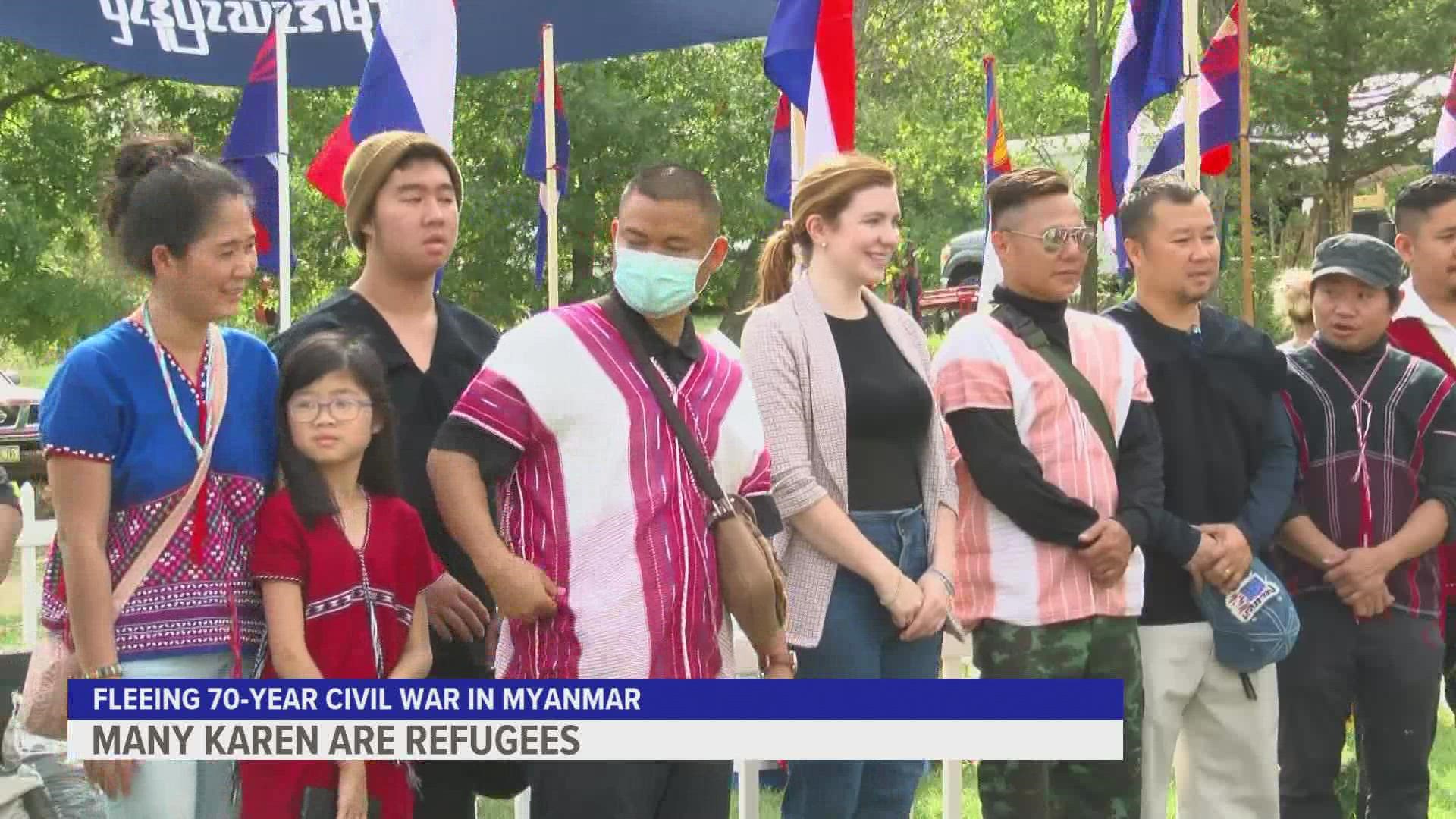DES MOINES, Iowa — Summer isn't usually considered part of the holiday season, but Sunday marked the celebration of Martyr's Day for members of Iowa's Karen community.
The Karen are an ethnic group from what was formerly Burma and is now known as Myanmar.
Karen from across the state gathered in Tai Village in Des Moines to remember Karen leader Saw Ba U Gyi, who was killed by the Burmese Army in 1950.
The holiday is typically observed on Aug. 12, but the Karen Association of Iowa pushed their celebration back this year.
"Today's a very important day for for all of us, especially the Karen people all over the world," said Sweenersoe Thako, a senior advisor with the Karen Association of Iowa. "We did not forget those who have sacrificed their life for the good cause."
Many Karen have become refugees due to the civil war in their homeland, which has been going for over 70 years, making it the longest in the world. Refugees from Burma make up Iowa's largest refugee group, with a population of approximately 10,000.
"My parents fled their home country when they were young, came to Thailand in a refugee camp. And that's where I was born. I grew up in a refugee camp. And then the U.S. government started their resettlement process for the refugees," Thako said.
The civil war in Myanmar has left more than 1.1 million people as refugees. That represents the fourth-largest refugee population in the world. Meanwhile, over 2.5 refugees have come—and are continuing to come—from Afghanistan. One challenge many refugees have struggled with is the language barrier.
"The parents do not speak the language here in the United States—English, I mean—but kids speak in the language because they have a chance to go to school," said Poe Eh, Vice President of the Karen Association of Iowa.
Thako said the best way Iowans can help their refugee neighbors is simple—talk to them.
"If you know us, you probably find out more what are needed in order for us to transition to a new life here and have a better live and better jobs and all that," Thako said.

